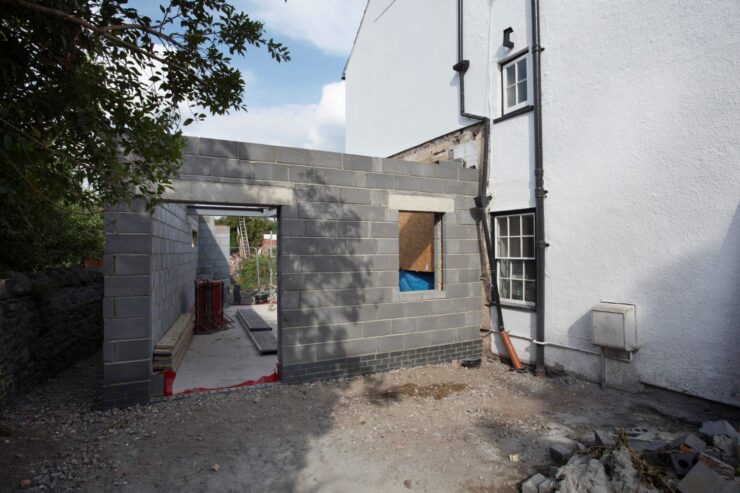Extending your home is a significant decision that can bring about a host of benefits, from creating more space for your family to increasing the value of your property. However, it’s a complex process that requires careful planning and consideration. In this comprehensive guide, we will explore the various aspects of house extensions, helping you navigate the journey from initial ideas to the finished project.
Initial Considerations
Make sure to check out Judges Building Services, they will be able to help with all of your home extension needs! Before you dive into the world of house extensions, there are several vital initial considerations to keep in mind:
Define Your Objectives
Start by defining your goals for the extension. Are you looking to add more living space, create a home office, accommodate a growing family, or enhance the aesthetics of your property? Clearly outlining your objectives will shape the direction of your project.
Set a Realistic Budget

Determine your budget early on, taking into account not only construction costs but also architectural design fees, permits, and any unforeseen expenses. A realistic budget is essential to ensure that your project stays on track financially.
Legal and Regulatory Requirements
Each locality has its own zoning regulations, building codes, and permit requirements. It’s imperative to research and understand the specific rules and regulations in your area before proceeding with your extension plans. Failure to comply can result in costly delays and legal issues.
Design and Planning
Once you’ve established your goals and budget, you can move on to the design and planning phase:
Engage a Professional
Hiring an architect or a qualified designer is a crucial step in the process. They will work with you to create a design that meets your needs, complies with local regulations, and seamlessly integrates with your existing home.
Consider Layout and Aesthetics
Thoughtfully plan the layout of your extension to ensure it flows seamlessly with your existing living spaces. Pay attention to aesthetics, aiming for a design that enhances the overall look of your property.
Materials and Finishes
Select materials and finishes that not only match your home’s existing exterior and interior but also contribute to energy efficiency. Sustainable options can reduce long-term maintenance costs and minimize your environmental footprint.
Legal and Regulatory Requirements
Navigating the legal and regulatory aspects of house extensions is critical:
Planning Permission

Depending on the size and nature of your extension, you may need planning permission from your local authorities. Consult with your architect or designer to prepare and submit the necessary applications.
Building Regulations
Adherence to building regulations is mandatory to ensure the safety and quality of your extension. These regulations cover structural integrity, insulation, fire safety, and accessibility standards. Be prepared for inspections at various stages of construction.
Choosing a Contractor
Selecting the right contractor for your house extension project is a pivotal decision:
Research and Interviews
Gather recommendations from friends, family, and neighbors, and interview potential contractors. Request references and examine their previous work to gauge their expertise and reliability.
Contracts and Agreements
Once you’ve chosen a contractor, establish a detailed written contract that outlines the scope of work, payment schedules, timelines, and any warranties. A well-defined contract promotes transparency and accountability throughout the project.
Project Management

Consider whether you will manage the project yourself or hire a professional project manager. A project manager can oversee construction, coordinate subcontractors, and ensure that the project adheres to the agreed-upon timeline.
Construction Phase
With the planning and legalities in place, you can now proceed to the construction phase:
Site Preparation
Prepare the construction site, which may involve excavation, demolition, or clearing. Ensure that any existing structures are adequately protected during this phase to prevent damage.
Construction Progress
Regularly inspect the construction progress to verify that the work aligns with the plans and specifications. Effective communication with your contractor is crucial to address any concerns or changes promptly.
Quality Control
Pay close attention to the quality of workmanship and materials used throughout the construction process. Timely identification and resolution of issues will help maintain the integrity of your extension.
Completion and Final Touches
As your house extension nears completion, there are several final touches and considerations to address:
Finishing and Fixtures
Select fixtures, fittings, and finishes that complement your design and budget. Ensure that all installations are completed to a high standard, both functionally and aesthetically.
Inspection and Certification
Local building authorities may require a final inspection to ensure compliance with building regulations. Obtain all necessary certifications and documents to confirm the legality and safety of your extension.
Landscaping and Exterior
Don’t overlook the importance of landscaping and the exterior of your home. Thoughtful landscaping can enhance the overall curb appeal of your property and create a harmonious transition between your old and new spaces.
Maintenance and Future Considerations

After the completion of your house extension, there are important ongoing considerations to keep in mind:
Regular Maintenance
To ensure the longevity and functionality of your extension, establish a routine maintenance schedule. Regular inspections of the structure, roofing, plumbing, and electrical systems will help identify and address any issues promptly, preventing costly repairs down the road.
Energy Efficiency
If you’ve invested in energy-efficient materials and systems during your extension project, continue to maximize their benefits. Regularly service and maintain your heating, ventilation, and air conditioning (HVAC) systems, as well as insulation, to ensure your home remains energy-efficient.
Adapting to Changing Needs
Over time, your needs and circumstances may change. Your once-perfect extension may need modifications to accommodate new requirements. Be open to adapting your space as necessary, whether it’s for an expanding family, a home office, or other evolving needs.
Adding Value to Your Property
One of the key motivations for house extensions is increasing the value of your property. Keep an eye on the real estate market in your area to assess the impact of your extension on your home’s value. Regularly maintaining and updating your home can further enhance its marketability.
Final Words
Extending your home is a substantial undertaking that can significantly improve your living space and property value.
By beginning with clear objectives and a well-defined budget, adhering to legal and regulatory requirements, and selecting the right professionals, you can successfully navigate the process. With diligence and attention to detail, your house extension can seamlessly blend with your existing home, fulfilling your goals and enhancing your living experience.
